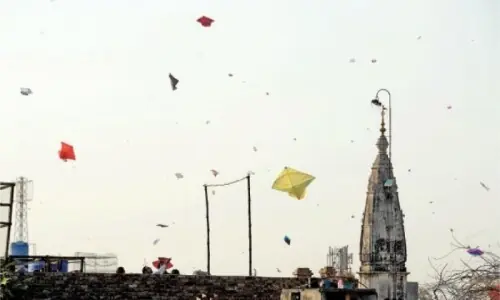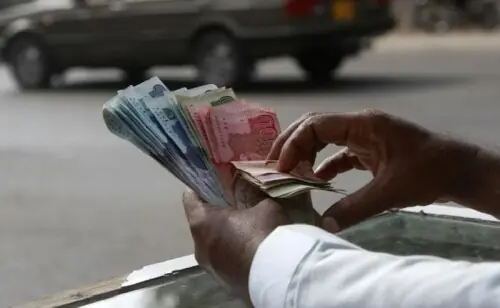FOLLOWING last month’s attack on Army Public School in Peshawar, the government is making renewed efforts to bring madressahs under some kind of state control. In a recent statement to the media, Interior Minister Chaudhry Nisar Ali Khan had said that 90 per cent madressahs have no link to terrorism (leaving 10 per cent that potentially do). The process of regulating madressahs, as was the case earlier when previous governments attempted similar interventions, is far from simple.
For one, no one seems to have a clear idea of how many madressahs there are in the country, registered as well as unregistered. While the spokesperson for the interior ministry estimates 20,000 registered and 40,000 unregistered madressahs, the Ittehad-i-Tanzeemat-i-Madaris-i-Deenia (ITMD), the umbrella group representing five major sects in Pakistan, claims that the number of registered madressahs in the country is 26,000 and that of unregistered 4,000. The ITMD’s general secretary and spokesman, Maulana Mohammad Hanif Jalandhri, says that three million students are enrolled in madressahs affiliated with the organisation.
Also read: Madressah reform
As part of the National Action Plan against terrorism, the interior ministry has asked the ministry of religious affairs the number of total madressahs in the country and the latter is trying to calculate the figure. So far the list, on which two officials of the ministry are working, carries the figure of 16,757.
“It’s all in a mess,” comments a senior official of the religious affairs ministry when asked about the registration criteria. “Everyone has different numbers.” He compares the role of his ministry to that of a post office, “getting the figures from provinces and passing them on to the interior ministry”. The rest, he says, is the interior ministry’s job and he doesn’t know what that is.
“The madressahs are registered with the ministry of industries and department of evacuee property,” says the director general of the ministry of religious affairs, Manzoor Ahmed Khairi. He feels that despite the repeated claims by the government that the new policy will bring all seminaries under government check, doing so will not be easy.
The spokesperson for the interior ministry, Adil Sattar, says that they have asked the provinces for “suggestions regarding the audit of seminaries, for the identification of their sources of funding and the checking of their curriculum”. He says that the process will take “at least three to four months” and that while “there are clear instructions to start the process immediately”, there has not been any mention of the date by which it should be completed. He adds that the interior ministry “will form a national strategy and then ask the provinces to execute it”. However, till they receive input from the provinces they can’t say “what exactly that strategy will be”.
The government, in similar exercises in the past, has tried to regulate the seminaries but with little success.
In the early 2000s, the retired Gen Pervez Musharraf government issued an ordinance to set up the Madressah Education Board. The aim was to regulate all privately owned religious seminaries and turn them into model schools with uniform syllabus approved by the authorities.
Not a single madressah though accepted the board, and according to a senior official of the ministry of religious affairs, only three government-established seminaries are under its control. Afraid of a possible backlash, the government has not pushed seminaries to accept the board.
Another past attempt to deradicalise madressahs saw the government doling out millions of rupees in purchasing computers for them and recruiting teachers for subjects such as English, Mathematics, Pakistan Studies and Urdu. However, since the madressahs refused to accept the government board and the authorities dared not take any action against them, they could not be monitored. Jalandhri says that they have their own “independent boards and don’t need supervision”. Nevertheless, he says that they had “consultations with the government in 2004-05, and occasionally later, about the curriculum”.
Questioning the government’s ability to monitor the madressahs, Jalandhri says that “they are unable to monitor and check their own formal schools, how can they check us”.
Executive director of the Centre for Research and Security Studies Imtiaz Gul points out that education is the “state’s responsibility”. Across the world, he says, “there are guidelines for curriculums which do not cause social disharmony but here there are no such guidelines.”
The need, Gul says, is for a “comprehensive registration law, uniform standardised law on madressahs to bring them under one ambit and address the issue of security and terrorism”.
The resolve is there, he feels, “but whether they can translate this resolve into an action that is another question”.
Published in Dawn January 13th , 2015
On a mobile phone? Get the Dawn Mobile App: Apple Store | Google Play



































